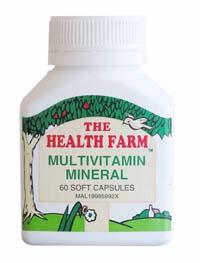Healthy vitamin additives?

Are vitamin and mineral additives as good and not dangerous as people think?
That's what the U.S. Health Institute (NIH) has wanted to know and, after a long and thorough study, it seems that additives are not always beneficial to everyone. They can even be harmful.
Opponent and reverse

In the United States, the use of vitamin and mineral additives is widespread: one in two adults receives them. Although not so common in Euskal Herria, they are increasingly consumed and can be easily purchased at any pharmacy or herbalist.
They are attended mainly by those responsible for health. Apparently, they are not sure that the vitamins and minerals they ingest through food are sufficient and want to ensure that they acquire the minimum necessary for the body.
Sometimes those who do so invent it. The NIH study shows that in some cases the additives are favorable. For example, from menopause it is convenient to take calcium and vitamin D to prevent osteoporosis. Pregnant women should take folic acid so that the child's spine develops properly. And for older people zinc and antioxidants are beneficial to avoid retinal problems.
However, this does not mean that all vitamin and mineral additives are good for everyone. Scientists have long known that some vitamins build up in the body. Therefore, if you take more than enough, they can be harmful.
Examples of this are the history of vitamin A, beta carotenes. Excessive consumption causes liver problems and increases the risk of abortion. In addition, excess beta carotene poses a special risk to smokers. The NIH study shows that smokers taking this vitamin are more likely to have lung cancer than the rest.
Continue working

Although the above are extreme cases, it is a good example of the damage that additives can cause. Therefore, NIH considers that it is better not to take vitamin and mineral supplements if not by optional prescription.
Moreover, NIH itself recognizes the need to continue investigating. He has analyzed all the research that has been done so far on the subject and from there he has extracted the data and conclusions. But it is not enough. For example, they do not know exactly the effect of vitamin and mineral additives on health, as other factors intervene.
For example, products enriched with vitamins and minerals are fashionable and often consumed by the same consumer. Another factor that should be taken into account is the interaction with medicines, since there is an interaction between certain medicines and vitamin that can increase the action of the drug or vice versa.
Finally, it should be noted that the best fed people in the US. are the most frequently consumed vitamin and mineral additives, while groups at risk of malnutrition problems do not.
Published in 7K.
Buletina
Bidali zure helbide elektronikoa eta jaso asteroko buletina zure sarrera-ontzian








